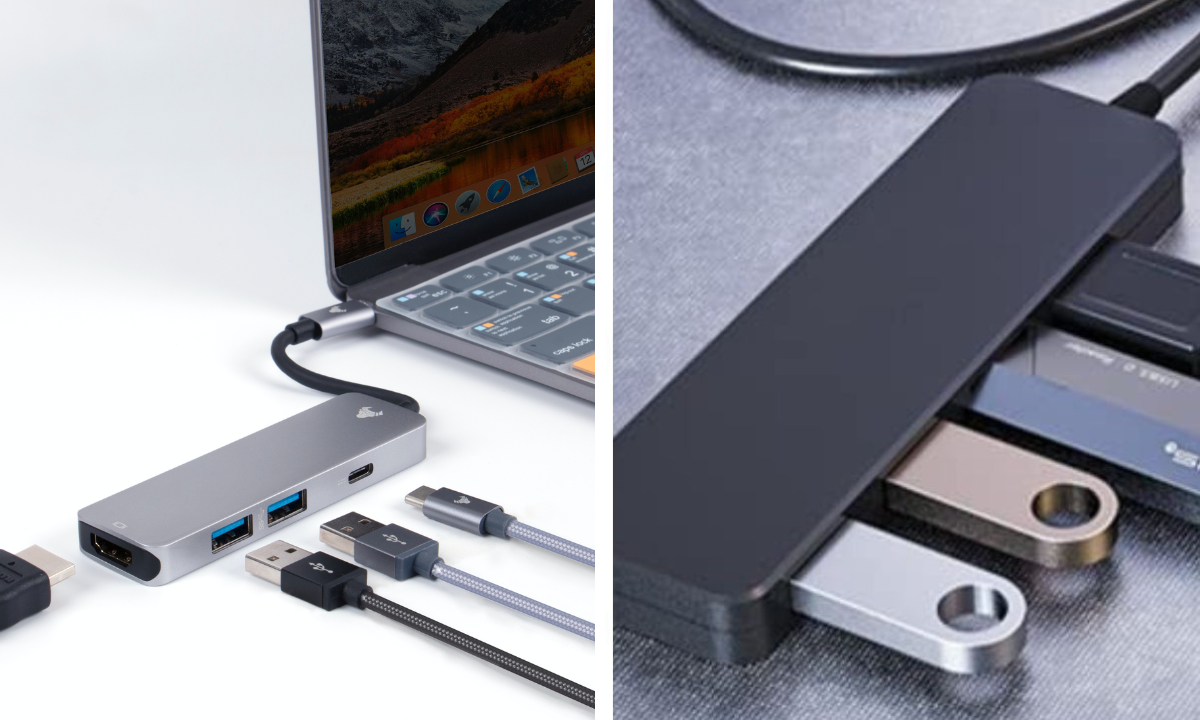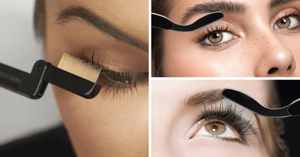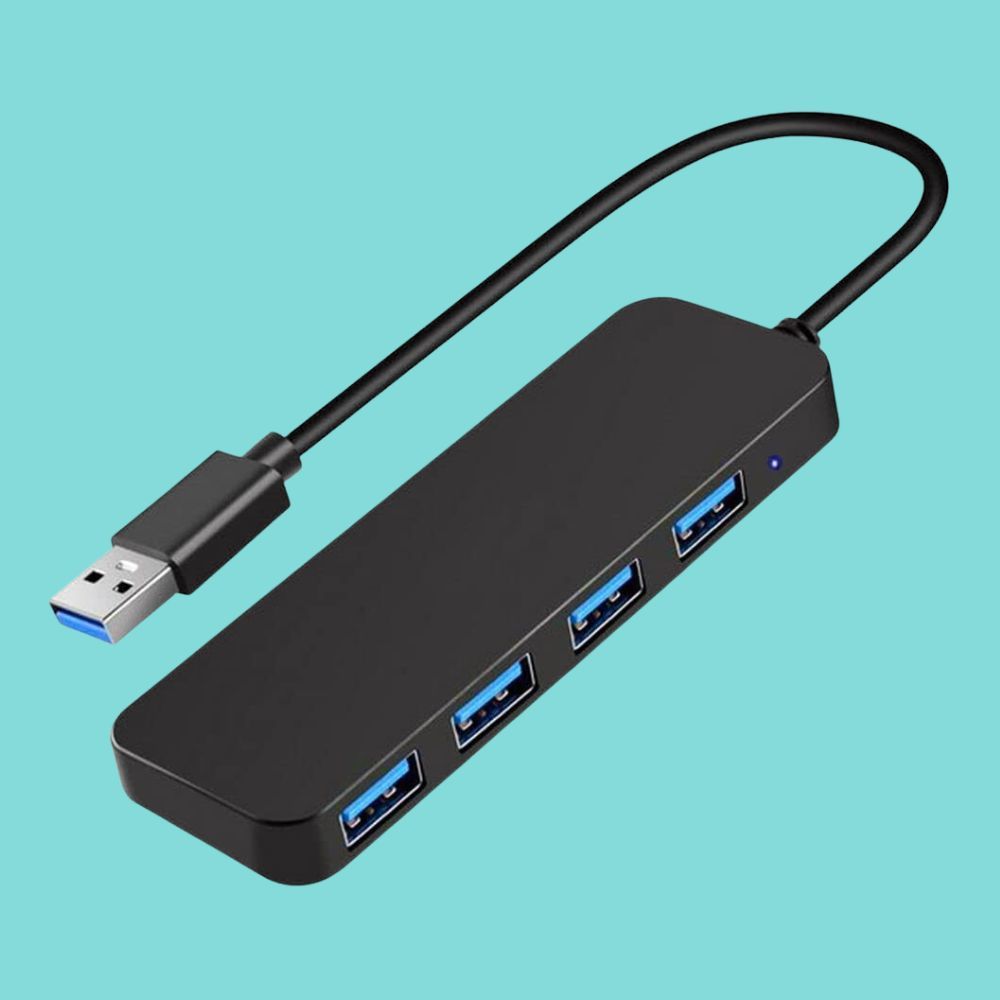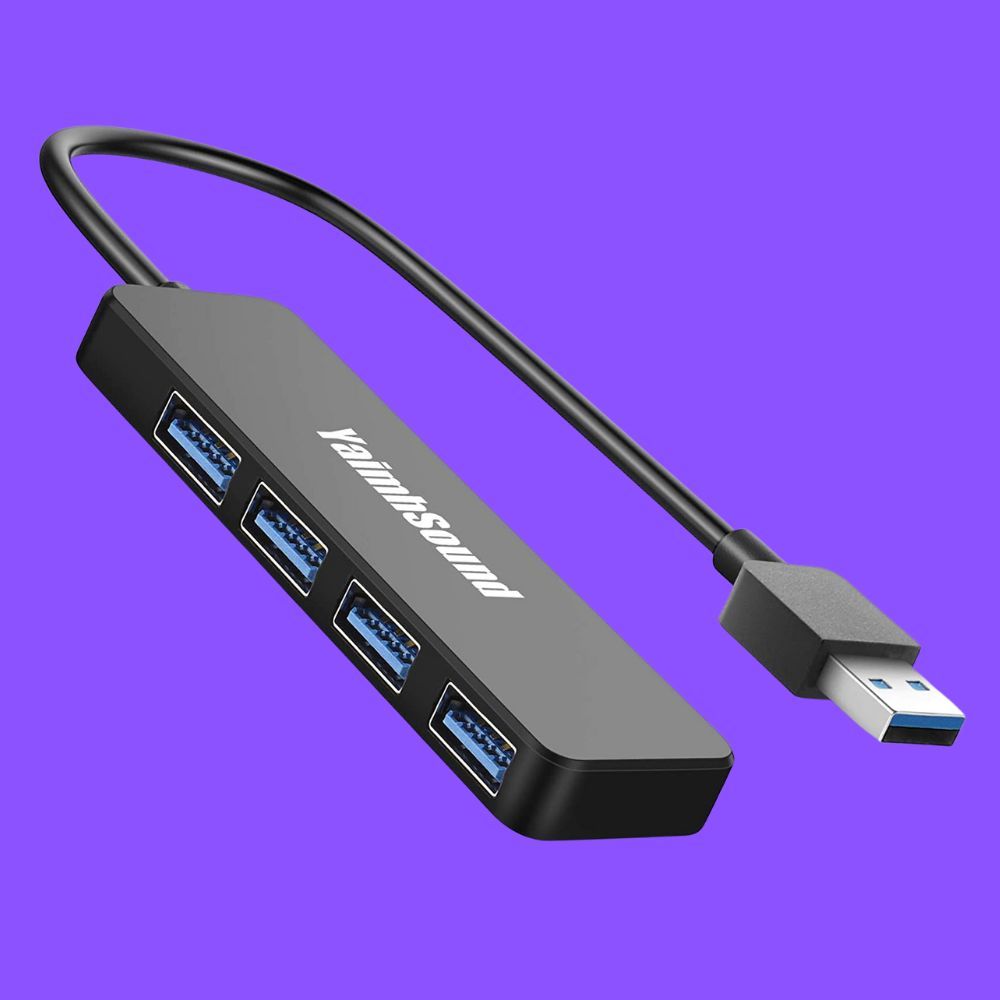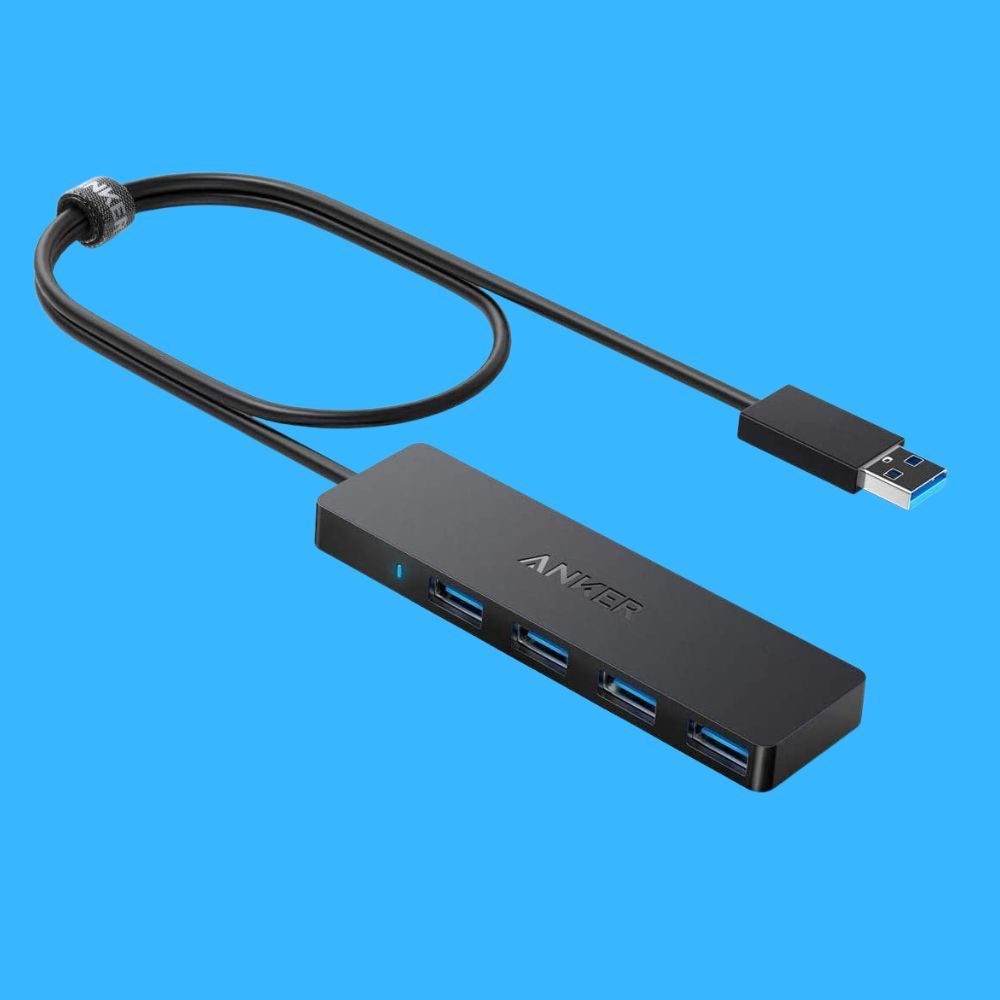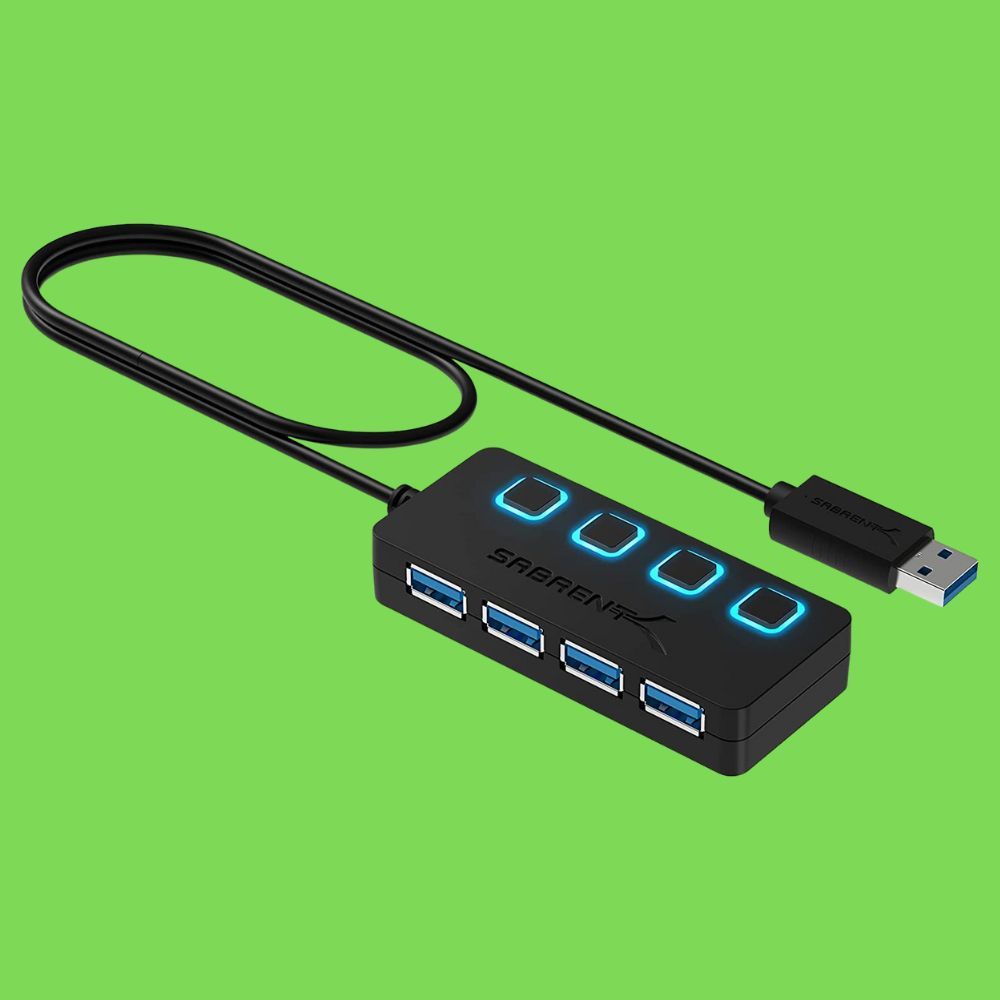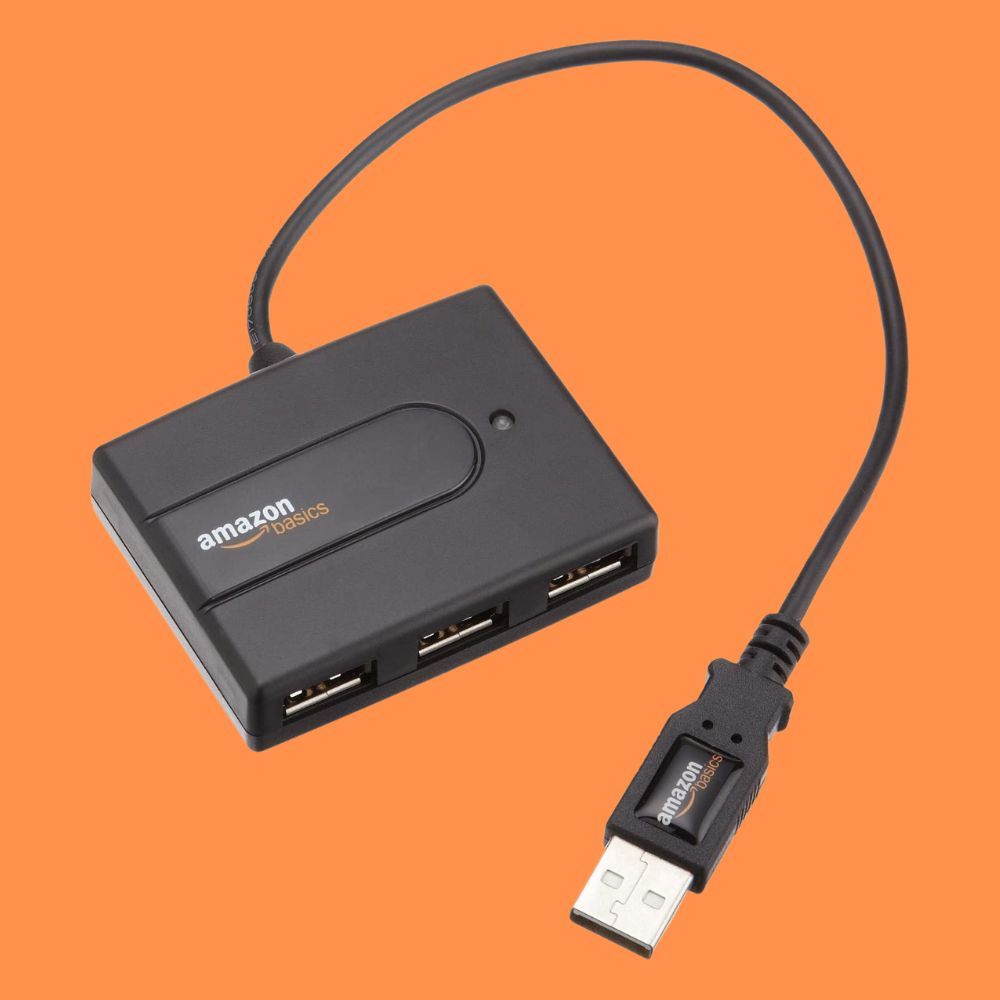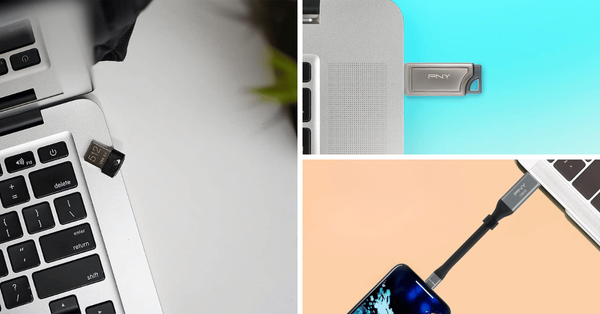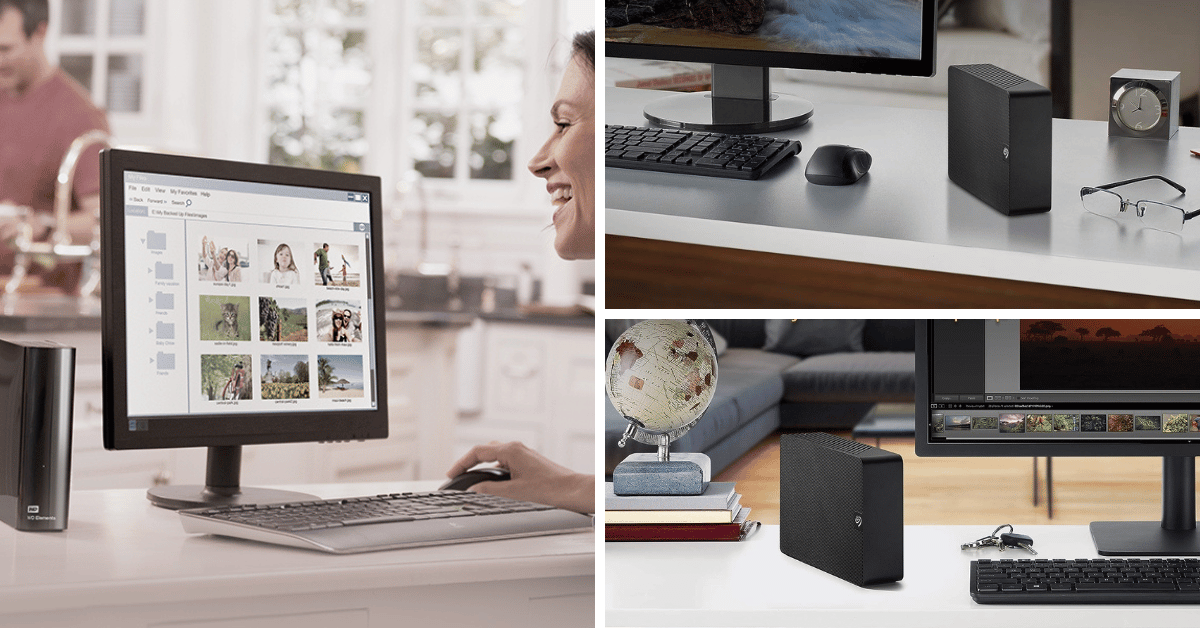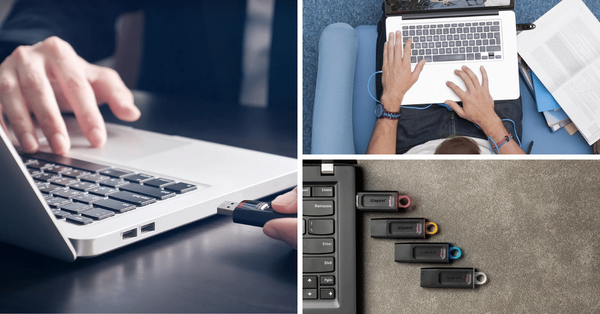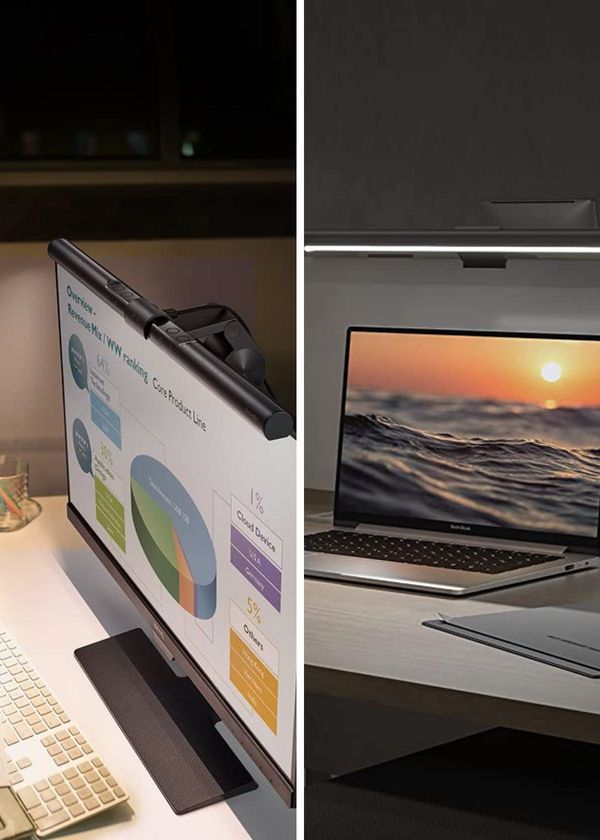Hey tech lovers, what’s powering your devices these days?
These days there’s an abundance of device accessories out there.
But if you really want to stay powered and connected no matter where you are, a USB hub is essential.
Whether you have a ton of gadgets to charge or just need more charging ports in one place, we've got the best 4 port USB hubs for every type of user!
Our list includes budget-friendly options that don't break the bank as well as premium models with advanced features like surge protection and data transfer capabilities.
We take into consideration speed, charging capacity and overall performance so that you can find the perfect choice for all your needs!
How We Choose
It's so hard to find a good 4 port USB hub!
You've probably seen all the different 4 port USB hubs out there and you're not sure which one to buy.
They all look the same, and they all promise the world.
We've done the hard work for you! After reading thousands of reviews, we've found the best USB hub(s) on Amazon.
This hub has been praised by reviewers for its durability, build quality, and ports!
Wondering Why We Love It
Introducing the VIENON 4-Port USB Hub - the perfect solution for all your device connectivity needs!
With four ports and ultra slim design, this USB hub will revolutionize your workflows by giving you more options than ever before.
Its 5Gbps data transfer rate provides fast transfers so that you can transfer large files easily with no loading times needed!
Plus, its plug and play feature ensures hassle-free installation, so setup is a breeze.
It's compatible with a wide variety of devices from laptops to PCs to XBOX consoles- whatever your choice of device, trust that VIENON has you covered!
The compact design can accommodate even the largest flash drives on the market and its 1 cm body ensures that each port has plenty of space next to it.
Don't underestimate this mini powerhouse - the VIENON 4-Port USB Hub has got what it takes to efficiently manage multiple tasks at once.
With its stable speeds and user friendly design, why take chances?
Get the VIENON 4-port today and unlock a world of possibilities!
Wondering Why We Love It
YaimhSound's 4-Port USB Hub 3.0 - the new and improved way to take care of all your USB needs!
Whether you're a tech geek, a gamer, an artist or just about anything else, this baby has got your back for whatever crazy task you need your USB ports for!
Build quality is top-notch; it's slim and portable hub with plenty of space between each port so don't worry about plugging in multiple drives at once.
Featuring high-efficiency 3.0 USB, your transfer speeds will be blazing - tested readings reach up to 371MB/s and are compatible with 2.0/1.0!
No more stress of frantic button pushing; everything works seamlessly without any interruptions.
Get yours today and finally have peace of mind that no matter what crazy task life throws at you, YaimhSound's 4-Port USB Hub 3.0 has got you covered!
Wondering Why We Love It
Do your computers have a major identity crisis?
More specifically, do they struggle with having just one USB port when four would be ideal?
Have no fear, the Anker 4-Port USB 3.0 Hub is here!
The Anker Advantage has already powered millions of devices, so you know you can trust it to deliver more than satisfactory results.
We’re talking ultra-fast data syncing capabilities capable of reaching speeds up to 5Gbps – perfect for transferring HD movies in seconds!
Sure, there are other Hubs out there but none as reliable as ours; it's designed to withstand heat better and built with incredible durability.
Not to mention that it'll be transforming one of your USB ports into four in no time at all.
So stop torturing your computer and get the Anker 4-Port USB 3.0 Hub!
Wondering Why We Love It
Do you feel like your single USB port just isn't cutting it?
Don't panic—SABRENT has your back!
Introducing the SABRENT 4 Port USB 3.0 Hub, the perfect work station addition that can instantly turn one USB port into four.
It comes with an extended two-foot cable for easy access to those far-away ports, as well as LED indicators that show the power status of each port and individual on/off switches for connecting and disconnecting your devices at the press of a button.
And don't worry about compatibility—you can use this hub with PCs, Macs, Xboxes…you name it!
That's not all though — with lightning-fast transfer speeds of up to 5Gbps (USB 3.0), 480Mbps (USB 2.0), & 12Mbps (USB 1.1) this is a device you've gotta have!
No worries though—setting it up is a breeze.
So why wait any longer?
It's time to upgrade from single to multiple ports with this sleek and savvy SABRENT 4 Port USB 3.0 Hub!
Wondering Why We Love It
Introducing the Amazon Basics 4-Port USB to USB— ready to plug you in and power you up!
With a USB 2.0 high-speed interface, our four-port wonder supports data rates of 1.5/12/480 Mbps for lightening quick connections.
And don't worry about compatibility – this baby is backwards compatible with USB 1.1 so no matter what kind of device you have it won't stand in your way!
Plus, there's no need to fiddle around with tricky packet configurations or annoying driver installs—it's automatic connection and speed detection paired with Plug-and-Play hot-plugging makes it truly driver free.
We've also added over-current detection and protection so that when it comes to powering your devices you know they're safe – with a max output of 2.5W (5V/500MA) across all four ports, charging is breeze as well as fee!
So what are you waiting for?
Get plugged in today with the Amazon Basics 4-Port USB to USB!
The Conclusion
If you're in the market for a 4 port USB hub, then congratulations!
You've come to the right place.
After reading thousands of reviews, we've found the best 4 port USB hubs on Amazon.
These hub has been praised by reviewers for its durability, build quality, and ports!
So if you're looking for top-quality 4 port USB hubs, then be sure to check out our recommended product.
And remember, always tap the check the price button before purchasing anything online!
4 Port USB Hub FAQ
What Is A Usb Hub Used For?
A USB hub is an extremely important piece of technology. It's a device that connects multiple USB devices to one computer through a single USB port. This means that if you only have one or two available ports on your laptop, laptop dock, desktop PC, etc., you can easily add more USB devices without having to swap cables or use up too much space with bulky adapters.
In addition to convenience and ease of use, some other benefits of using a USB hub include:
- Increased Data Transfer Speed: A good quality hub will allow you to transfer data between connected devices faster than if they were connected directly with the host computer’s built-in ports;
- Expansion Capabilities: You can also connect additional peripherals, such as external hard drives and memory cards for quick access;
- Charging Multiple Devices at Once: With all your charging needs in one place it becomes easier (and faster) to charge multiple devices at once from just one outlet;
- Flexibility: With the different types of hubs available today (USB 3.0 hubs vs those using previous versions), the ability to customize your setup based on which type of device you are connecting has increased significantly over time.
Whether it's for home use or business purposes, adding a USB hub expands your capabilities exponentially when compared with direct connection methods – and allows easy access for all sorts of digital activities involving taking care of personal projects such as photo editing and music production – as well as office tasks like online meetings and document sharing!
What Are The Disadvantages Of A Usb Hub?
The best USB hubs can be a great way to expand the amount of devices you can connect to your computer, especially if you have multiple peripherals like thumb drives, digital cameras, phones, and more all vying for the same USB port. However, with that convenience comes some drawbacks. Here are some of the potential disadvantages of using a USB hub:
1. Speed Limitations: Since every connected device has to share bandwidth in a USB hub-connected setup, any high-speed data transfers may slow down your connection speed significantly. This is especially true if you are using older 2.0 Hubs instead of newer 3.0 hubs that feature multi-lane transfer speeds up to 800Mbps or greater per port or lane (in addition to faster charging options).
2. Power Limitations: Many USB ports only provide limited power so if you plug too many devices into one Hub they will draw too much power and cause some of them not to work correctly or even possibly damage them due to overcharging/overheating issues. You either need self powered hubs with their own dedicated power sources or look for "bus powered" hubs which offer higher DC voltages for better performance but still don’t reach full capacity with multiple devices installed at once..
3 Heat Generation: Whenever more components are added together there is an increase in heat generation from both the additional load placed on existing components (such as power supplies) as well as from electrical interference between connected parts; this heat build up could lead eventual component malfunction and possible shorting out when left unchecked over time!
4 Required Maintenance: Some users may find themselves needing regular maintenance checks and updates on their HUBs depending on how often it is used and what type it is; complicated setups such as those involving a variety of different types/brands could require experienced IT personnel who might not always be available when needed most – leading towards potentially difficult operating conditions fro non-expert users alike!
Do Usb Hubs Reduce Quality?
It's a common misconception that USB hubs reduce the quality of your transfer speed and performance. In reality, this is not true - there are certain factors at play when it comes to connecting your devices through a USB hub, but none of these will have an effect on the quality of connection or data transfer rate.
Firstly, you need to understand that in order for information to be transferred between any two computing devices (be it smartphones, printers or hard drives) over a USB port, both the host device (the computer) and the peripheral device must support the same version of USB. Currently most PCs run either Windows 10 or Mac OSX operating systems which will automatically attempt to match up with compatible peripherals. If they don't match then no communication can take place.
The thing about using a USB Hub is that it opens up more possibilities for connectivity and thus more potential points of failure if there isn't perfect compatibility between two particular devices being connected together via one hub port (e.g., an older printer trying to connect with a new laptop). As such, you should make sure that both endpoints are running compatible versions of firmware/software designed for each other before attempting connection through multiple hubs plugged into different ports on one PC/laptop etc.. That said, from my own experience I've found that even when mismatched products are connected via multiple-port hubs there seems to be minimal impact on data transfer speeds compared with directly plugging into standard single ports - sometimes faster due to better power supply regulation amongst all connected peripherals as well!
To sum things up; yes technically speaking USB Hubs can reduce quality in terms of data throughput rates but only if 1) The product driver/firmware being used by either endpoint isn't compatible and 2) There is poor power supply regulation amongst all connected peripherals leading to slow transfers due degrading relationship between voltage current vector values across links etc... So as long as everything is correctly set up then using hubs shouldn’t negatively affect overall performance or data transmission qualities –and just might even improve them depending on how many devices you need connecting simultaneously!
What Is The Difference Between A Usb Splitter And A Usb Hub?
A USB splitter and a USB hub are both handy devices for connecting multiple computers or devices to one port. However, they do have some very important differences that you should be aware of before deciding which to use.
First off, a USB splitter allows two different devices to connect simultaneously. This means that you can plug in two flash drives, mice, keyboards, printers and more into one single port - making it great for when your laptop does not have enough ports available.
On the other hand, a USB hub works by expanding the number of available ports on your device by allowing different peripherals such as mice and keyboards to be connected at once using just one port. It basically functions like an octopus with many "arms" (USB C power cable) attached to it allowing you to plug in various things simultaneously without having too many cords running around your workstation or desk.
In addition, a USB hub is able to offer power output while a splitter cannot; this makes them ideal pieces of equipment if you want extra USB ports but don't want or need extra power supply sources like wall adapters or battery packs plugged into each device separately.. They also usually include features like over-current protection for added safety which will keep all connected devices from getting damaged due to excessive currents flowing through the unit itself.
Ultimately though, whether you choose between these two depends on what exactly you are looking for in terms of functionality and convenience - but either way both can come in very handy when setting up multiple computers/devices onto one single connection!
What Do You Use A Usb C Hub For?
A USB-C hub is great to have if you're looking to expand your device's capabilities, especially when it comes to connecting additional accessories. It's a small and handy gadget that equips you with more ports for charging devices, connecting peripherals such as keyboards and mice, transferring data from external hard drives, or even streaming audio or video.
One of the main advantages of having a USB-C port hub is that you can connect many different types of cables/devices at one time without worrying about cluttering up your desk - all the connections are neatly housed in one place! You can easily transfer data between multiple devices by plugging them into the same port on the hub. For example, if you have a laptop and an Android tablet plugged into the same hub simultaneously using only one cable, then they can both access photos stored locally on each other’s storage drives.
Additionally, Only Usb C Ports come with pass-through charging capability so that you can simultaneously charge both connected devices while still keeping them connected through their respective cables. This means no more swapping cables around every time you need to charge something - just plug everything in once and forget it! Last but not least, some advanced models also offer extra features such as card readers (for SD/microSD cards) and HDMI port for video output. All this makes the best USB C hub incredibly useful gadgets for anyone who needs quick access to various wired peripherals and wants to keep their workspace organized at all times!
Does An Ethernet Hub Reduce Speed?
The simple answer is yes, an Ethernet port hub can reduce speed. However, it depends on the context in which you use one. If a network of devices are connected using a hub, each device must share the bandwidth available between all devices that are connected to the hub. This essentially means less bandwidth for each device and therefore slower connection speeds overall.
For instance, when connecting two PCs together via an gigabit Ethernet cable with no extra hardware involved (i.e "peer-to-peer"), each PC will receive 100% of the potential connection speed (up to 1 Gbps) as they form what is called "a point-to-point" link.
However, if both PCs were then connected to a single Ethernet Hub instead of directly together, this would create what's known as "a shared medium", meaning all PCs sharing a single channel in order to communicate with each other over that single physical connection - and this includes any additional devices connected to that same Hub! This reduces potential speeds drastically because now every time data has to be sent from one end of this shared medium (the Hub) it gets queued behind all requests from other traffic going on within that network segment as well. So overall, adding another layer like an Ethernet Hub into your home or office network can cause slowdown due to congestion - just like during rush hour on a highway where everybody is trying to get somewhere at once!
To put it simply - more nodes = slower speed when utilizing hubs due the limited bandwidth being shared by multiple users/devices at once; whereas having fewer nodes creates faster communications since there's more room for those individual connections within their own exclusive channels (as opposed being lumped together onto one bigger pipe).
Can I Use A 4 Port Usb Hub For Gaming, And Will It Impact My Gaming Performance?
Yes, you can use a 4 Port USB Hub for gaming, and it typically won't impact gaming performance negatively. In fact, it can be a practical accessory for gamers with various USB-powered devices:
a) Gaming peripherals: Many gamers use multiple peripherals like gaming mice, keyboards, controllers, headsets, and other accessories. A 4 Port USB Hub allows you to connect all these devices simultaneously, keeping your gaming area organized and clutter-free.
b) Streaming setup: For streamers or content creators, a USB Hub enables you to connect webcams, capture cards, and other streaming equipment without overloading your computer's built-in USB ports.
c) Charging options: Some USB Hubs have dedicated charging ports, allowing you to charge your gaming peripherals or smartphones while gaming without draining your computer's USB resources.
d) External storage: If you have external hard drives or SSDs for game storage, the USB Hub can accommodate these devices, making it easy to access your game library without reaching for the back of your computer.
While using a 4 Port USB Hub, ensure that it is of good quality and supports high-speed data transfer to avoid any potential latency issues. Most modern USB Hubs provide sufficient performance for gaming needs.
What Should I Consider When Buying A 4 Port Usb Hub, And Are There Any Compatibility Issues To Be Aware Of?
When purchasing a 4 Port USB Hub, consider the following factors:
a) USB version and data transfer speed: Look for a USB 3.0 or USB 3.1 Hub for faster data transfer rates, especially if you intend to use it with high-speed peripherals like external SSDs or fast gaming mice.
b) Power source: Some USB Hubs are bus-powered (draw power from the connected device), while others come with an external power adapter. If you plan to connect power-hungry devices or multiple power-hungry peripherals, consider a Hub with an external power source for stable performance.
c) Design and build: Choose a Hub that suits your setup and workspace. Compact and lightweight Hubs are ideal for portability, while sturdier models are suitable for a fixed gaming or workstation.
d) Compatibility: While USB Hubs are generally compatible with most devices, double-check for any specific compatibility issues with your computer, operating system, or gaming console.
e) Brand reputation and reviews: Research customer reviews and brand reputation to ensure you're purchasing a reliable and durable USB Hub.
By considering these factors, you can find a suitable 4 Port USB Hub that meets your connectivity needs and enhances your gaming or computing experience.


